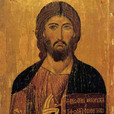
Summary: Think I’m on safe ground when I say à Those listening to this are mostly likely students of history. Your knowledge of the past is probably more comprehensive than the average person. And of course, the range of knowledge among subscribers to CS spans the gamut from extensive to, well, not so much. Yet still, more than the average.If asked to make a list of the main thinkers of the past; philosophers, theologians, and such like, of Western tradition, we’d get the usual. Socrates, Plato, Aristotle. Seneca, Cicero, Virgil. Clement, Origen, Augustine, Aquinas.A name far less likely to make that list is the subject of this episode. Though he’s not oft mentioned in modern treatments of church and philosophical history, his work was a major contributor to medieval thought, which was the seedbed form which the modern world rose.His full name was Anicius Manlius Torquatus Severinus. But he’s known to us simply as Boethius.Born to a Roman senatorial family sometime between 475 & 80 in Italy, Boethius was left an orphan at an early age. He was adopted by another patrician, Memmius Symmachus, who instilled in the young man a love of literature and philosophy.Symmachus made sure Boethius learned the vanishing skill of literacy in Greek. With the split between the Eastern & Western Roman Empires now settled, and the Fall of the Western Empire to the Goths, it seems Greek, primary language of the East, fell to disuse in favor of Latin. In the West, Greek became increasingly the language of scholars and those suspected of lingering loyalty to the East.Nevertheless, Boethius’ familiarity with the classics commended him to the new rulers of the West – the Ostrogoths. Their king, Theodoric the Great, appointed the 35 year old Boethius as consul. While the office of consul was technically linked to the ancient Roman Republican Consul, by the 6th C, it was an office far more of image than substance. Still an important position politically, but wielding none of the authority it once had. By Boethius’ time, that is the early 6th C, being a senator meant little more than, “This is someone to keep your eye on as a potential future leader.” Being made a consul was like making the finals in the last round of the playoffs. But with an emperor seated on the throne, all rule and authority was concentrated in the royal court. A 5th & 6th C Roman Consul was more a political figurehead; a polite fiction; a nod to the glory of ancient Rome and her amazing feat of world conquest. From Augustus on, the Roman Senate and her consuls steadily lost place to the new imperial bureaucracy. After Augustus, who moved swiftly to relocate and consolidate all power within his executive office, Roman emperors turned to the Prefect of the Praetorian Guard as the new go to guy in executing Imperial policy. By the time of Boethius, that office had evolved into what was called the Magister Officiorum; head of all government and judicial services.When Boethius’s term as consul was up, his two sons were appointed co-consuls in his place, one for the West, the other for the East. He was then promoted into the role of Magister Officiorum – the highest administrative position in King Theodoric’s court.And that’s where the fun begins. à Well, it wasn’t so fun for Boethius. I probably ought to say; that’s where the political shenanigans and devious machinations began. For it was there, serving Theodoric, that Boethius ran afoul of the ambitions of powerful men.They used Boethius’ faith to bring him down.And here we’re back to the old Arian-Nicaean Controversy. You see, while Arianism had been debunked and expelled from the Western Church long before all this, it found a home among the Goths of the East; the Ostrogoths, who now ruled what was left of the Western Roman Empire. King Theodoric was an Arian, as were his Ostrogoth pals, many of whom were jealous that an outsider like Boethius had the highest post they could aspire to. Oh
